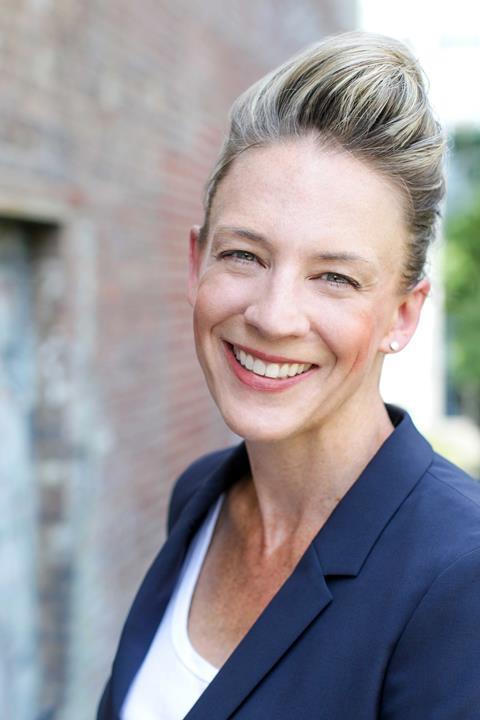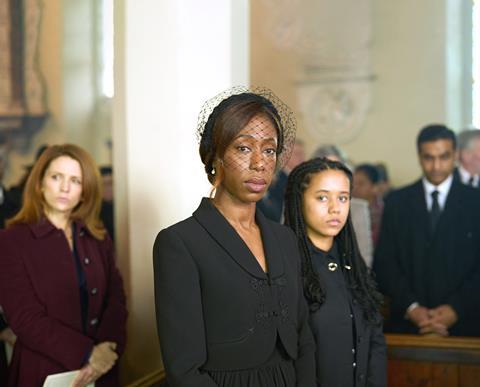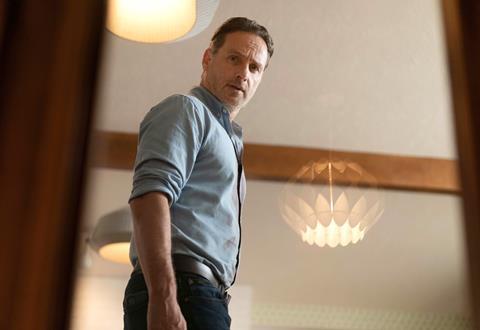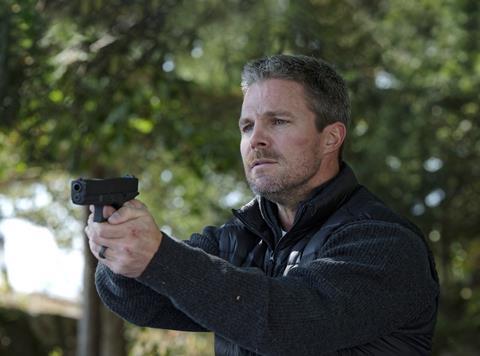Twenty execs from major distribution companies give their views on the opportunities and challenges facing the industry, from risk aversion and falling spending to the need to get creative when it comes to financing and windowing
Creativity is alive and well in the TV industry – though not where you might ordinarily expect to find it. The distribution sector has been pulled in myriad directions over the past few years, ducking and diving as the pillars that held the industry together got pushed apart.
Not so long ago, streamers wanted global rights and the US studios were doing away with third-party sales in favour of a direct-to-consumer approach. Soaring demand for shows (as well as wider economic turmoil) sent production costs rocketing around the world.
Then came the slowdown, as those same streamers re-evaluated their priorities, putting cost-efficient programming and profit above subscriber growth. US networks, already under huge pressure from cord-cutting, continued to shrink, while slumping advertising revenues in many European countries hit buyers’ pockets.
“The sector is challenged, and there’s an absolute need to be agile, partner-focused and creative”
Janet Brown, BBC Studios
Over the past 18 months, the hangover from the excess has come to the fore, and it has been largely left to distributors to get creative and deal with the resultant headaches.

“The [distribution] sector continues to be challenged and there’s an absolute need to be agile, partner-focused and creative in response,” says BBC Studios president of global content sales Janet Brown.
Brown is one of almost 20 senior distribution chiefs speaking to Broadcast International for this piece, which reveals an industry attempting to find stability and the means to get shows off the ground in a post-peak TV environment.
“The US remains challenged as the big players shift strategy and spend remains low,” concurs Fremantle chief executive of commercial and international Jens Richter, whose slate includes Amazon Prime Video’s Costiera and Paramount+ drama Little Disasters. Buyers remain risk-averse, he adds, especially around niche content, but the advent of advertising-supported streamers means there is “plenty of appetite” for shows that “hit the right tone”.
It is a similar assessment from ITV Studios managing director of global partnerships Ruth Berry, who describes the industry as being “cautiously optimistic and evolving with the market changes”.
She says broad trends include a move to more light-hearted shows, like ITVS-distributed drama Ludwig, plus “tried-and-tested content”, such as The Voice.
There is little doubt that risk aversion pervades the industry at present, and buyers, no doubt with one eye on their jobs, are betting on mainstream shows that know their audience.
“Proven formats and reboots” are being leaned into, says Banijay Rights chief executive Cathy Payne, but she also hints at broader optimism that the industry is “showing signs of recovery as we all take a more pragmatic approach to business”.
Keshet International managing director of distribution Kelly Wright describes it as a “thawing out” of last year’s budget freezes. “There’s a feeling that things are opening up again,” she says.
Safer bets
Some genres are ahead of others. As Payne points out, formats provide a safer bet and dovetailing the use of proven IP with cost-effective production techniques mitigates risk, with hub productions also proving popular.
“We’ve seen hubs work well with Stranded On Honeymoon Island,” says Tim Gerhartz, managing director of Germany’s Seven.One Studios International. “It’s proving to be a great way for broadcasters across different countries to collaborate and cut costs.”
However, while the format sector – or at least companies such as Banijay that can deliver trusted IP in a cost-effective manner – may see an upside from risk aversion, Payne notes that mid-priced factual and documentaries continue to struggle.
“Distributors don’t have bottomless pockets and we have to be more creative in our deal-making”
Tim Mutimer, Cineflix Rights
She also points to scripted and the yawning deficits that come with many projects as a key challenge, and one that requires considerable thought (see box, below).
“The market seems to have acknowledged that distributors don’t have bottomless pockets and, therefore, we have to be more creative in our deal-making,” says Cineflix Rights chief executive Tim Mutimer, whose scripted series include Australian comedy Sunny Nights.

“With the squeeze on budgets, there is a real opportunity right now to work with broadcasters’ acquisitions teams in key territories such as the UK, US, Australia and Germany. As well as finished tape, they are pre-buying both non-scripted and drama as a more cost-effective way of securing content and, in some cases, having editorial input.”
Such is the prevalence of this model, it even has its own term: ‘acquimission’. Mutimer says it represents an opportunity for distributors and producer partners “who have been frustrated by the commissioning slowdown of originals”, while TVF International senior acquisitions manager Sam Joyce says it has become “standard vernacular” among buyers and commissioners.

TVFI senior sales manager Daniyal Bari adds: “A great example is our world affairs documentary Arming The Arctic, commissioned by TVFI and RTL Germany, which explores urgent and rising geopolitical tensions. We were involved from treatment stage and invested in the project both financially and editorially. In just a few months, it has sold to 20-plus territories.”
And there’s the rub. While a decline in commissioning is hardly good news for a distributor’s pipeline, the upside is an opportunity to secure a tighter grip on a project, albeit at a cost.
High production costs and “cautious” buyers are also cited by Paramount Global Content president of international content licensing Lisa Kramer. But, she says, her biggest opportunity over the next 12 months is making the most of the windowing opportunity that this squeezed market provides.
“Flexibility and multiple windows for content are providing great benefit to our licensing partners,” she adds. “Second windows were initiated as a cost-effective means for multiple parties to access great titles, but now they benefit all parties. The incremental exposure creates greater title awareness for both the second-window licensee and the first-window licensee, who finds increased demand for new and upcoming seasons.”

Sony Pictures Television executive vice-president of distribution and networks for EMEA Mark Young says that “getting rights back sooner” from streamers is also providing more monetisation potential.
Keshet’s Wright points to Rough Diamonds, which was produced with De Mensen for Netflix and VRT in Belgium. The drama became a top 10 hit for the streamer in more than 70 territories and Keshet International is now able to sell it again, just 18 months later.
Route to monetisation
Wright is finding that all deals are “negotiable”, something BBCS’s Brown also highlights. “Navigating funding for each piece of content often requires a sophisticated approach across multiple partners,” she says. “While this can add complexity, it can also unlock new opportunities to collaborate and inspire a new range of ongoing partnerships and revenueshare models.”
One good example of this ‘creative windowing’ is the deal BBCS struck for The Jetty, which secured a so-called ‘co-exclusive’ in the US with Disney-owned streamer Hulu and BBCS’s BritBox. But it’s not just happening in North America.
BBCS’s team in China recently signed its first revenue share deal with iQiyi, Tencent and Youku for natural history show Asia, and Brown says performance to date has exceeded expectations.
“Commissioners are shifting from developing shows exclusively for their audience to becoming partners”
Rodolphe Buet, Newen Connect
Negotiable deal-making with global streamers might seem an obvious opportunity in today’s climate, but it’s a far cry from the situation distributors faced barely two years ago. This shift in strategy has ramifications across the industry and, for Newen Connect distribution chief Rodolphe Buet, provides a major boon.
“There are many different opportunities: multiwindowing, co-production, local [shows] opening to the world, the ability to combine audiences and strengthening the value of IP we finance and distribute,” he says.

“But if I had to stress one, I would say it’s the commissioners’ mindset: they are shifting from developing shows exclusively for their subscribers or audiences to becoming partners creating mainstream stories, entertaining wider audiences for shared ownership of event programmes.”
Buet also highlights the support for non-English-language shows among buyers, something Beta Film chief distribution officer Oliver Bachert also picks out, adding that they are “well received when they are relatable”.
The trend is not new, but it has been given a considerable boost over the past 18 months, with the likes of Shōgun, Squid Game, Lupin and High Intellectual Potential (HIP) winning not just viewers but countless awards and nominations.
While some of those shows boast big-name stars, the current travails facing the scripted sector are pushing distributors towards lesserknown talent. Bigger projects come with bigger price tags, says Federation co-head of distribution Guillaume Pommier, and library content can still perform.
“There is still room [which comes at a high cost] to develop, invest in and distribute very large projects that will make an impact,” he says. “But library content has become the driving force behind many clients’ searches. It’s the surest way to secure consumer engagement and bet on already established brands.”

Pommier adds that buyers are “much more open” to acquiring non-exclusive catalogue rights, but prices are decreasing “depending on territories, meaning we need to make more sales to achieve the same turnover as before”.
Securing that library content is also putting pressure on distributors, given that the volume of new shows is decreasing. But Avalon head of distribution Paula Warwick says the focus has to be on “putting projects together in more creative ways”.
Realistic returns
Fifth Season’s outgoing president of TV distribution Prentiss Fraser agrees. “There is a lot of content available if a distributor is able to help package, presale and finance programming,” she says. “Platforms and broadcasters alike are more amenable to single-territory deals versus global, so there is no shortage of excellent opportunities, if your infrastructure can support that model.”

That can, of course, be a big ask on budget-heavy scripted, but on unscripted, especially, more modestly sized distributors have been able to deliver despite the ongoing squeeze. BossaNova has become a consistent financer over recent years and few execs are more adept at running with sharply changing market trends than founder Paul Heaney.
“We are now part of the content financing model, and an integral part at that,” he says. “So let’s not fuck it up by taking too many risks and overheating the market.”
Such a sentiment is shared by numerous execs contacted by Broadcast International, including Sphere Abacus managing director Jonathan Ford and Hat Trick International director of sales Sarah Tong, both of whom point to the importance of being “realistic” about returns in the current market.
Clearly, market shifts are not done yet. Streaming aggregators are affecting the strength of the windowing system, spending is still not stable and seismic M&A looks likely in 2025, throwing up further challenges for distributors.

“Acquisition budgets and business models are still being revised following recent restructures and management changes,” says StudioCanal chief commercial officer Anne Chérel, whose slate includes Paris Has Fallen, Playing Nice and Families Like Ours.
“We’re also expecting to see increased M&A activity this year, as companies seek strategic consolidation to stay competitive.”
This view is reflected by several other execs, who admit they are holding their breath at the thought of further consolidation.
Platform potential
Amid the M&A uncertainty, there is a feeling that the ebb and flow of buyers’ demand over recent years is at least beginning to settle down – and the balance of power is hitting more of an equilibrium. Numerous execs mention that navigating the path to return on investment has never been harder, with Viaplay Select & Content Distribution executive vice-president Vanda Rapti adding that cost efficiencies are increasingly important.
And, reflecting the shifting balance of power, several execs admit that they would now simply walk away from a project rather than shoehorn it into a model that does not offer a good chance of returns.

New platforms are also providing viable opportunities to monetise content, with ad-supported services of all flavours seen as offering potential. Off The Fence managing director of distribution Stefanie Fischer says the rise of hybrid SVoD/AVoD “is opening new revenue streams, allowing us to maximise the value of our content across multiple windows”.
ITVS’s Berry agrees, pointing to the rollout of Max, Samsung TV and Roku as opportunities. She is also bullish on her company’s efforts to embrace digital via Zoo 55 and “evolving the business towards new audiences on social channels across YouTube, Meta, Snap and FAST”. ITVS reached more than 10 billion social views in 2024, she adds, and hopes for more in 2025.
DIALLING DOWN DEFICITS
Scripted costs have soared to such an extent that there are now believed to be at least 15 high-end TV projects greenlit by UK broadcasters that cannot be produced because of a budget shortfall.
Fremantle’s Jens Richter tells Broadcast International that his “sweet spot” for scripted is now around £2m per episode, well below the highs of recent years, and distributors are turning their backs on filling heftier and riskier deficits.
“It’s about understanding our buyers’ needs and working with them to offer solutions in what is a challenging environment for the whole industry,” says Cineflix Rights’ Tim Mutimer.
Effective use of tax credits and soft money are now must-haves on most dramas, but several execs speaking off the record say scripted is now viewed as a “longer-term investment proposition”. One says the deficits required are “changing the way we think about risk and our usual returns”.
While connecting partners around the world can get a show made, Keshet’s Kelly Wright highlights that collaboration is both an opportunity and a challenge.
“What we often see is that having that ‘global’ mindset from the get-go almost closes the distribution doors. The more international a project becomes, the less there is in the backend for its collaborators. That desire to collaborate has a cost. There’s a lot of extra effort for what ends up being a smaller financial upside.”
Such reach is already valuable but streaming is a growth sector, unlike the declining world of linear. Monetising shows via these more nascent platforms – are they just new windows? – seems like a must-have play as distributors deal with a world in which “uncertainty is the new certainty”, as BBCS’s Brown puts it.
“With platforms like YouTube now central to global content consumption, the industry needs to rethink how it integrates digital alongside traditional distribution. It needs to embrace hybrid models that allow IP to thrive across TV, streaming and online ecosystems,” says WBITVP executive vice-president of format and finished tape sales Andre Renaud.
“The challenge is clear: how do we create content that’s financially sustainable and built for the way people consume entertainment today?”
It is a challenge that the distribution sector is tackling with a mixture of determination and creativity. Expect plenty of smart strategies to emerge in London this month.








No comments yet